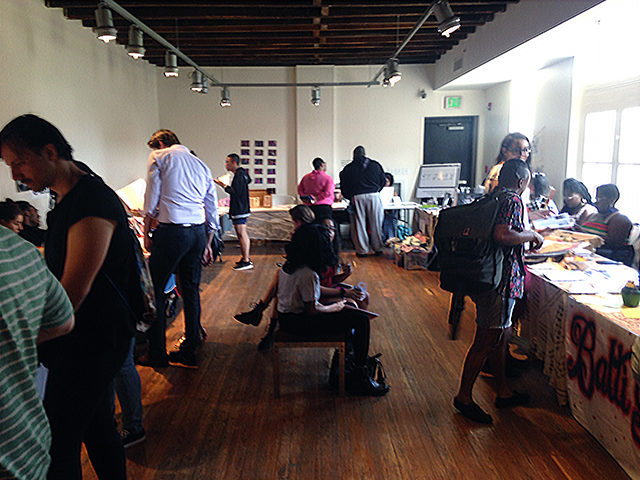 I’m not sure why, but there’s a totally unfounded stereotype that zine nerd culture is “a white people thing”. Thankfully, that misconception has been corrected. Baltimore now has Kahlon, an event series/curatorial platform that prioritizes correcting the real and/or perceived diversity problems across DIY scenes.
I’m not sure why, but there’s a totally unfounded stereotype that zine nerd culture is “a white people thing”. Thankfully, that misconception has been corrected. Baltimore now has Kahlon, an event series/curatorial platform that prioritizes correcting the real and/or perceived diversity problems across DIY scenes.
Last weekend, Kahlon (Abdu Ali, Bomin Jeon, and Markele Cullins) partnered with Brooklyn’s 3 Dot Zine to bring an edition of the Brown Paper Zine Fair to Baltimore. Spread across three galleries of the Eubie Blake Cultural Center, the fair feels a bit like a smaller, more manageable version of Baltimore’s somewhat-overwhelming Publications and Multiples Fair. One big distinction: Brown Paper is focused on zinesters, small publishers, and printmakers of color.
And, like PMF, the fair encompasses “multiples” in many forms—from ceramics to local makers such as Pretty Ugly, a family-owned, vegan, natural cosmetic company. I’m not going to lie: as a pseudo-vegan drag queen, they were the booth I definitely spent the most time browsing.
Some more highlights below:
Barbara Calderón (aka Sad Sirena) had a table that was also pretty tough competition for the title of most glamorous spread. Calderón’s spacey collages feature imagery such as “Tejano Madonna” Selena as a celestial goddess towering over Teotihuacán, manicures, and plenty of glitter. If I had a locker, this is basically what the inside would look like.
Markele Cullins offered prints of queer minority couples and T shirts with backwards slogans including “BLACK QUEER LOVE IS RESISTANCE”. The photos are really lovely, and recall the candid “Downtown Scene” photographers of the 1990s-early 00s but with a much more tender gaze.
These ceramics from Weication were a really nice balance of practical (desktop organizers, etc) and whimsical.
Tortilla Gurl is a collaborative zine where artists are all invited to contribute a page in different shades of one color. The first edition was pink, and its birth was an involved process. They brought along their first ever attempt at assembling a zine, a comical trial-and-error tale involving someone’s mom’s printer. I love this, because anyone who has ever self-published anything has definitely made so many of these mistakes. The takeaway seems to be a demystification of the magic process of bookmaking—anyone can do it, you’ll just probably fuck up along the way.
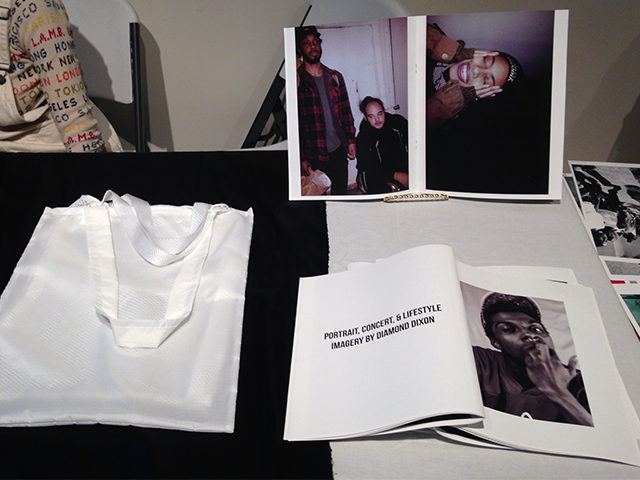
Diamond Dixon‘s zine of gorgeous candid portraits.
Local collective 0zone (pronounced zero zone) presented a multi-artist booth with some original approaches on zine fair standards. Caroline Xia‘s Young and Wholesome: exploring love and queerness—a zine comprising screen captures of social media exchanges and emoji-heavy personal text messages between two siblings stands out for its take on identity and love, sprinkled in with plenty of humor.
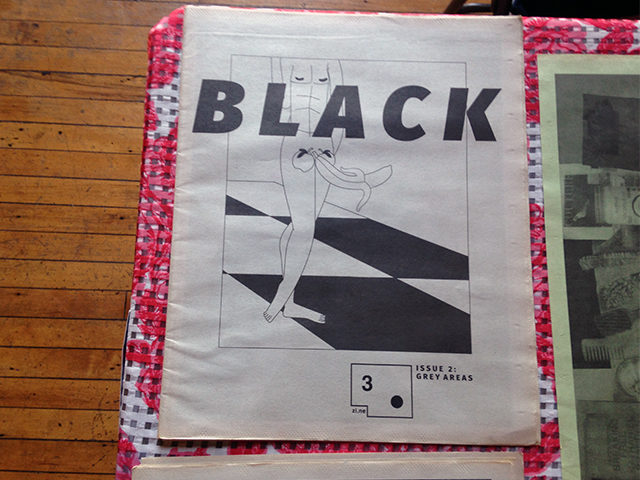
Theresa Chromati‘s forever bizarre illustrations of strange genitals in surreal spaces.
Kenricka’s Skrt Skrt Skrt Vol. 4 is a trippy, semi-narrative indie comic that features an awful lot of creatures caressing unwitting humans. It’s a great blend of creepy and funny.
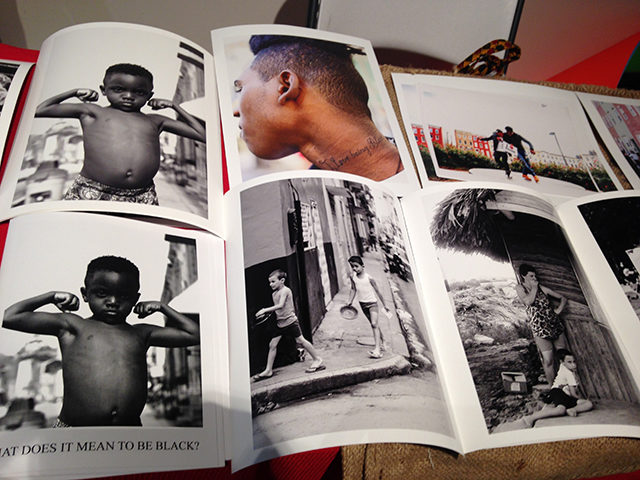
Shan Wallace’s zine BLVKBLUE (What Does It Mean to Be Black?) and her street photography.
The first time I met Shan, she was explaining her frustrations about representations of queers, POC, and especially Black communities—namely, narratives are always framed around violence, victimhood, or tragedy. What’s left out is all the stuff that isn’t about a crisis—the bulk of individuals’ experiences. As a photographer, she makes a conscious choice to focus on candid shots of West Baltimore that resist sensationalism and focus on day-to-day life or celebratory moments (a stoop cookout or birthday party, for example. Or maybe just someone walking to the store). The communities she documents are very much the intended audience of her work. That feels important.
I thought about that conversation when looking at her zines in the context of Brown Paper. Overall, the fair is a remarkably happy place considering its focus is on marginalized communities. It’s indicative of the organizers’ success in creating a space where artists and audiences of color feel comfortable. Spaces such as that are all too rare.
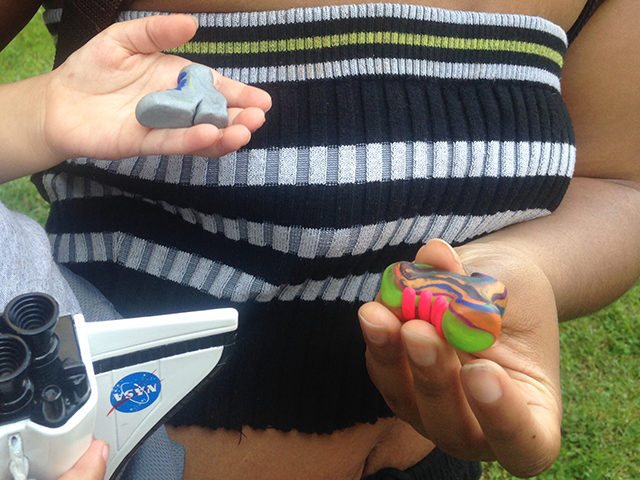
Bonus: Somehow I missed these clay boots by Carmen Johns at the fair, but ran into a friend and her toddler outside. Apparently these were the one thing he really wanted. A tiny man of good taste!

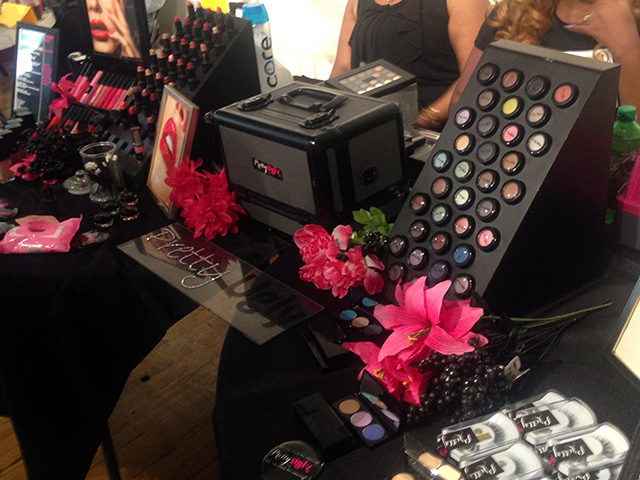
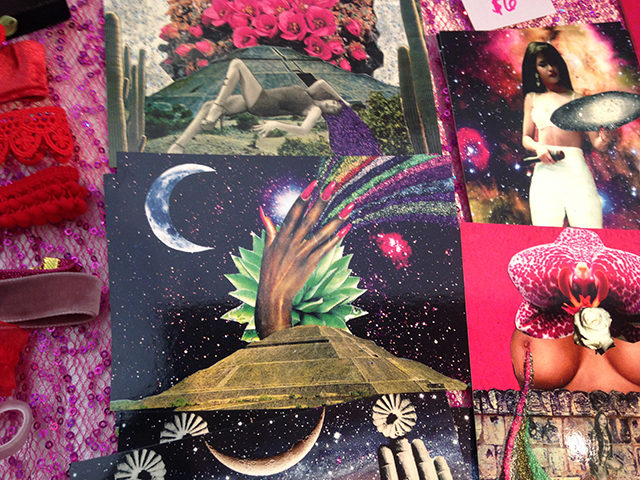
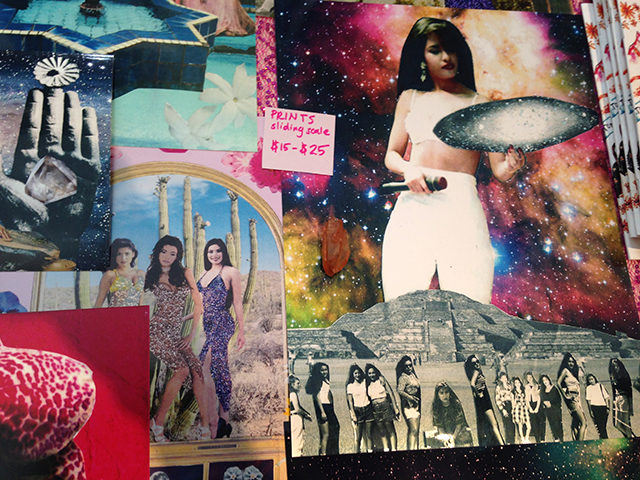
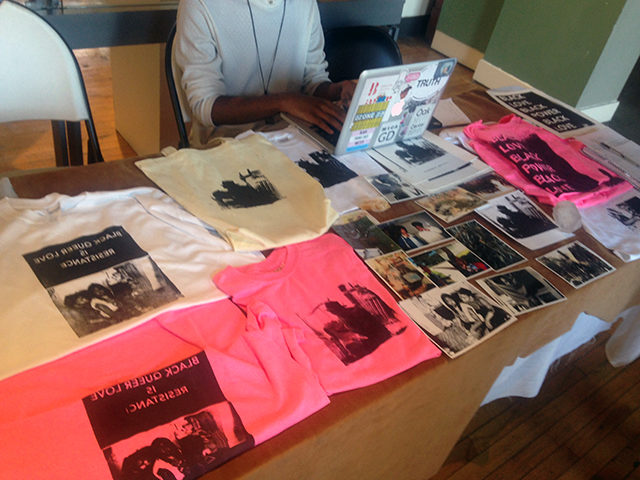
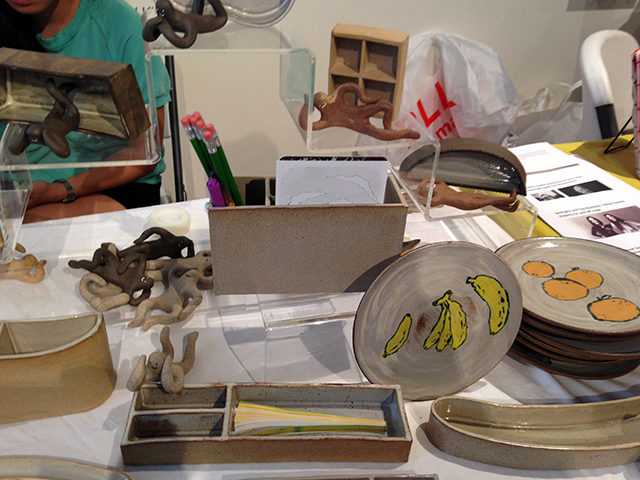
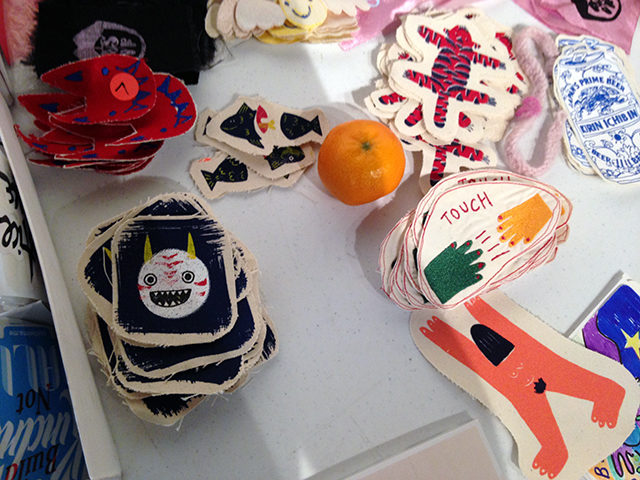
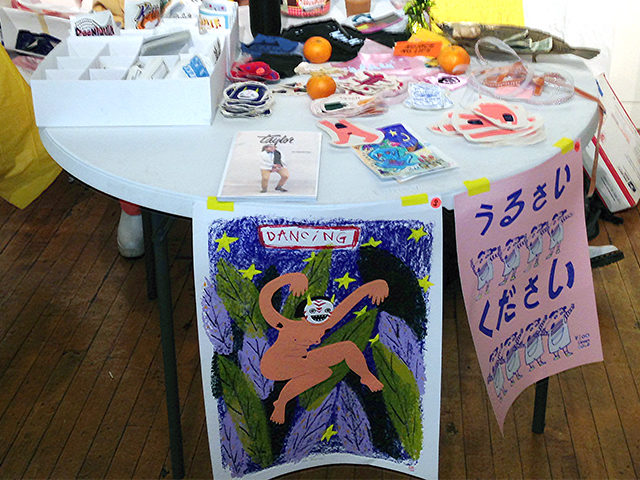
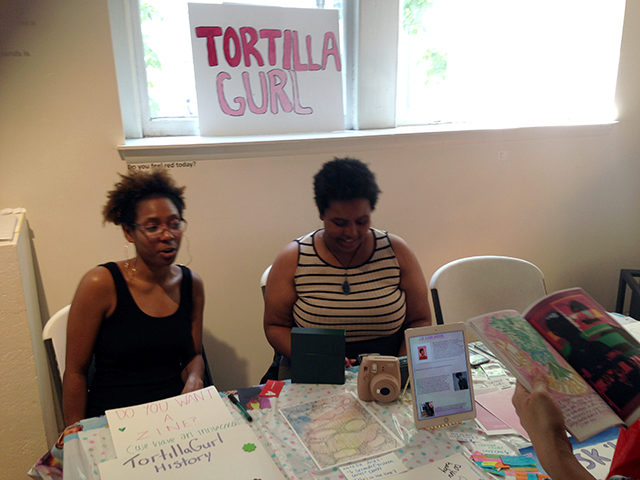
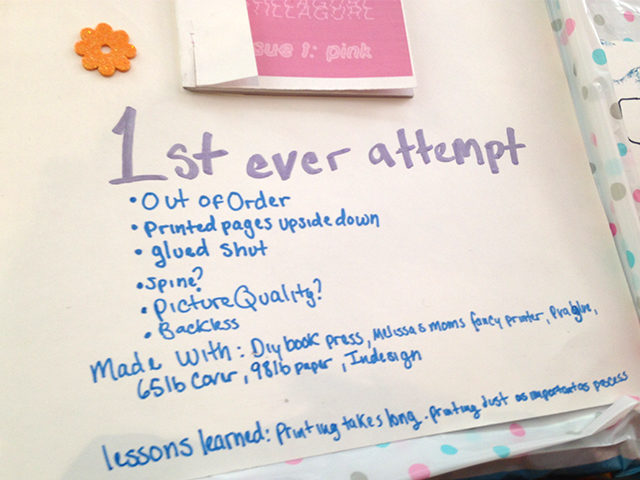
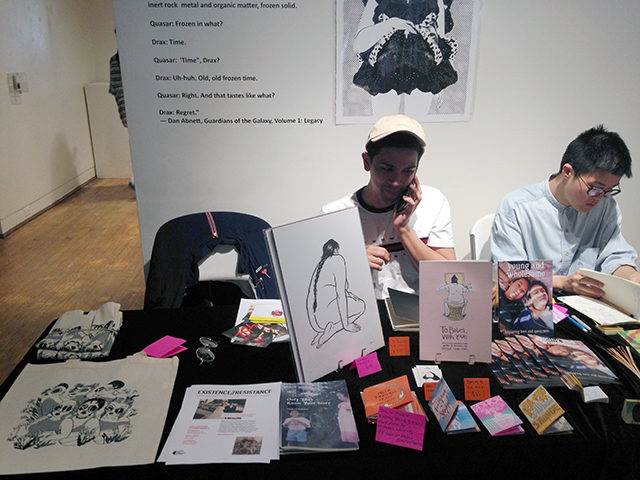
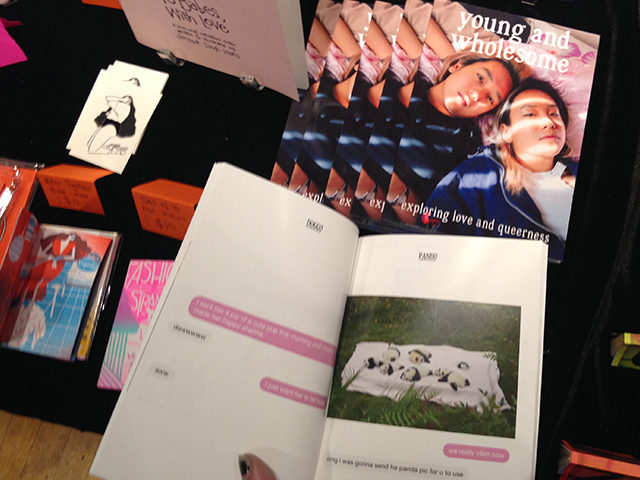
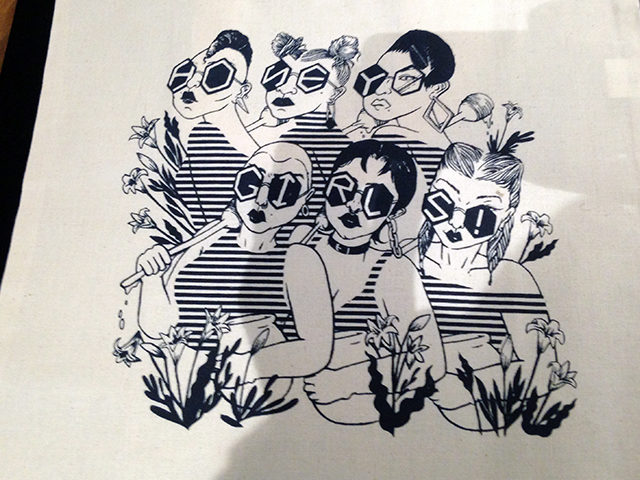
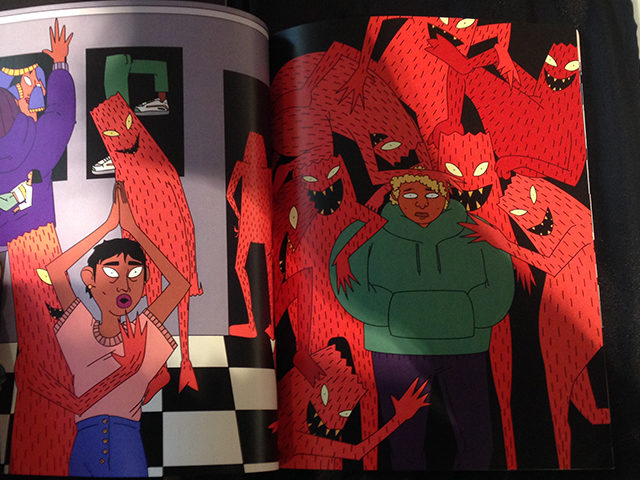

Comments on this entry are closed.